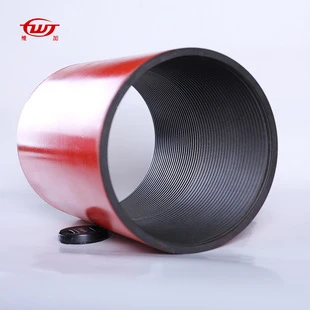- Afrikaans
- Albanian
- Amharic
- Arabic
- Armenian
- Azerbaijani
- Basque
- Belarusian
- Bengali
- Bosnian
- Bulgarian
- Catalan
- Cebuano
- Corsican
- Croatian
- Czech
- Danish
- Dutch
- English
- Esperanto
- Estonian
- Finnish
- French
- Frisian
- Galician
- Georgian
- German
- Greek
- Gujarati
- Haitian Creole
- hausa
- hawaiian
- Hebrew
- Hindi
- Miao
- Hungarian
- Icelandic
- igbo
- Indonesian
- irish
- Italian
- Japanese
- Javanese
- Kannada
- kazakh
- Khmer
- Rwandese
- Korean
- Kurdish
- Kyrgyz
- Lao
- Latin
- Latvian
- Lithuanian
- Luxembourgish
- Macedonian
- Malgashi
- Malay
- Malayalam
- Maltese
- Maori
- Marathi
- Mongolian
- Myanmar
- Nepali
- Norwegian
- Norwegian
- Occitan
- Pashto
- Persian
- Polish
- Portuguese
- Punjabi
- Romanian
- Russian
- Samoan
- Scottish Gaelic
- Serbian
- Sesotho
- Shona
- Sindhi
- Sinhala
- Slovak
- Slovenian
- Somali
- Spanish
- Sundanese
- Swahili
- Swedish
- Tagalog
- Tajik
- Tamil
- Tatar
- Telugu
- Thai
- Turkish
- Turkmen
- Ukrainian
- Urdu
- Uighur
- Uzbek
- Vietnamese
- Welsh
- Bantu
- Yiddish
- Yoruba
- Zulu
casing collar
Casing Collars Vital Components in Oil and Gas Drilling
In the oil and gas industry, drilling operations are complex, multifaceted processes demanding efficient technology and robust materials. One such critical component in this field is the casing collar, a crucial element that enhances the integrity and safety of drilling operations. In this article, we will explore what casing collars are, their functions, types, and importance in drilling operations.
Casing collars are specialized fittings used in the assembly of casing strings—steel pipes that provide structural integrity to a wellbore. These components are typically installed at predetermined intervals along the casing string and serve various essential functions. Their primary role is to connect different sections of casing, allowing for a smooth transition between varying diameters of pipe and ensuring that the entire wellbore is adequately supported.
One of the main functions of casing collars is to provide a landing point for drilling tools. When drilling operations reach certain depths, it is crucial to have reliable points where tools can be lowered, retrieved, or even disengaged from the drilling assembly. Casing collars help facilitate these operations while minimizing the risk of damage to the casing or the surrounding geological formations.
Another significant function of casing collars is to assist in managing hydraulic pressure within the well
. During drilling, the pressure exerted can be immense, and the integrity of the casing string becomes imperative to prevent blowouts and other hazardous situations. Casing collars, designed to withstand immense pressure, play a pivotal role in ensuring that the wellbore remains secure and that fluid can safely circulate throughout the drilling process.casing collar

Casing collars come in various types, each designed for specific applications. The most common types include standard collars, which are used for general purposes in most drilling operations, and specialized collars such as float collars and guide shoes. Float collars are typically equipped with check valves that prevent backflow of cement during the casing cementing process, while guide shoes facilitate the positioning of the casing string as it is lowered into the wellbore.
The importance of casing collars extends beyond mere functionality; their reliability directly impacts the safety and cost-effectiveness of drilling operations. Inadequate or failed casing collars can lead to catastrophic consequences, including wellbore collapse, lost equipment, and even environmental disasters. By investing in high-quality casing collars and ensuring they are correctly installed, operators can enhance the overall safety of the drilling process.
As the demand for energy resources continues to grow, the oil and gas industry is constantly evolving. Innovations in materials science and engineering have led to the development of advanced casing collar designs that offer greater durability and performance. Modern collars are often constructed from high-strength alloys and treated to withstand corrosive environments, ensuring they can endure the challenges of deep-water drilling and other demanding applications.
In conclusion, casing collars are indispensable components in drilling operations within the oil and gas industry. Their roles in supporting wellbore integrity, managing hydraulic pressure, and facilitating drilling operations underscore their significance. As the industry continues to advance, the development and optimization of casing collars will remain crucial for safe and efficient energy extraction.
-
Tubing Pup Joints: Essential Components for Oil and Gas OperationsNewsJul.10,2025
-
Pup Joints: Essential Components for Reliable Drilling OperationsNewsJul.10,2025
-
Pipe Couplings: Connecting Your World EfficientlyNewsJul.10,2025
-
Mastering Oilfield Operations with Quality Tubing and CasingNewsJul.10,2025
-
High-Quality Casing Couplings for Every NeedNewsJul.10,2025
-
Boost Your Drilling Efficiency with Premium Crossover Tools & Seating NipplesNewsJul.10,2025







